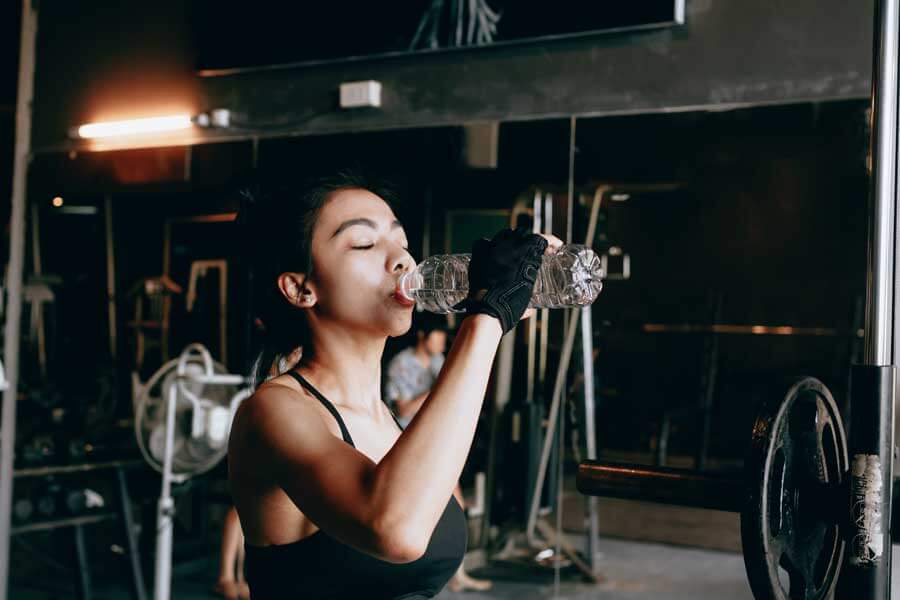FITNESS FACTS FRIDAY – NUTRITION
As the weather starts to warm up here in Belmont’s hoFest shed, I thought I would take the 0me to go through the ins and outs of hydra0on.
1.How do I know I am dehydrated and what ramifica0ons does it have on my training?
Your greatest natural detec0on system for dehydra0on is thirst. Unfortunately, by the 0me this warning sign kicks in you are likely already dehydrated. As liFle as a two percent loss of hydra0on will affect performance in the gym, so you want to make sure that you hydrate before and during your session. A foolproof way to see if you are doing an adequate job is to weigh yourself before and aTer your session. The grams or kilograms you lose during training are almost en0rely composed of water, so ending the session lighter than you started is a good sign you didn’t take in enough fluids.
2.What is the recommended water consump0on dependant on my training?
Recommenda0ons of water consump0on for both endurance and strength training really depend upon individual metabolism, sweat rate, climate and level of exer0on. However, a good blanket recommenda0on for both weight training and endurance is to drink 200 mL to 300 mL. of fluid every 10 to 20 minutes. If you are someone who perspires more than average or if you are compe0ng in extreme climates those amounts should increase.
3.When should adjust, or increase hydra0on?
Obviously, the longer you’re training, the more water you should consume to keep up with demand. Also, compe0ng in extreme temperatures drives up your body’s need for extra hydra0on. Since crea0ne works by drawing more water into muscle cells, you would do well to add extra water while supplemen0ng with it, especially if you are going through a loading phase. Also, certain powdered sports drinks are designed with a mechanism that drives fluid into your cells so they would be best consumed with extra water to func0on properly.
4.How to track hydra0on?
There are water containers that have counters on them which you ‘click’ every 0me you refill. This is a good way of keeping track of how much water you consume. You can also set an alarm to go off every 90 minutes as a reminder to grab another boFle or glass of water. Also, keep an eye on the colour of your urine. If you have 2 nearly-clear urina0ons a day, chances are you are properly hydrated. It’s a low-tech method that works wonders.
5.Effects of hydra0on on muscle, recovery and weight loss?
Hydra0on effects all three of these factors in a big way. Keep in mind that 75 percent of muscle 0ssue is water. So, it is not hard to see how cri0cal proper hydra0on is to muscle growth. Also, as men0oned above, a small amount of dehydra0on affects performance. And if you are not performing up to your maximum poten0al, you certainly aren’t growing to your maximum poten0al. Water is used for countless metabolic processes, many of which effect recovery. From muscle repair, to protein synthesis to nutrient absorp0on (diges0on) water and hydra0on levels play a huge role. To put it simply, you cannot recovery properly without adequate hydra0on. Lastly, staying hydrated is a key component to a smart weight loss plan as it flushes toxins out of your system, keeps your diges0ve tract healthy and can even help you feel more full, cudng down the risk of binge ea0ng or consuming excess calories. So many people are looking for a pill or ‘magic formula’ when it comes to fat loss, but it’s actually hard to beat good old H20 as a weight management ‘supplement’

